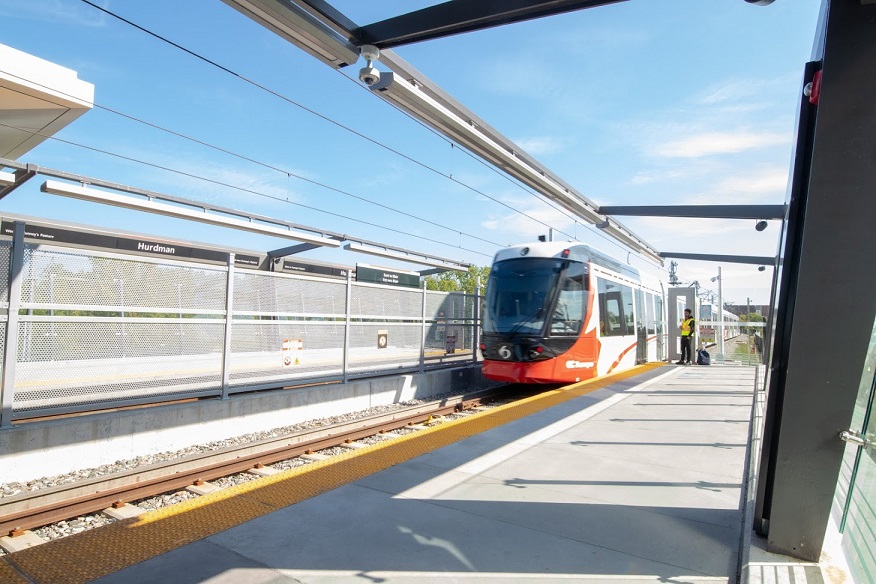Exploring Ottawa's Mobility: Do You Really Need a Car to Live Here?
Ottawa's Urban Landscape
Ottawa, the picturesque capital city of Canada, is a vibrant mosaic of culture, history, and modern urbanism. Nestled along the Ottawa River, this city is not only the political heart of the nation but also a hub for diverse lifestyles and rich cultural experiences. As new residents and visitors alike grapple with logistics, a common question emerges: Do you need a car to live in Ottawa?
This article delves into the intricacies of Ottawa’s transportation dynamics, offering a comprehensive view of the city's mobility landscape. From the bustling streets of downtown to the serene suburbs, we explore the extent to which a car is essential for navigating Ottawa’s diverse neighborhoods. Drawing on insights from local residents, visitors, and online communities like Reddit, Quora, and TripAdvisor, we aim to provide a well-rounded perspective on urban mobility in Ottawa. Whether you're considering a move to this charming city or planning a visit, understanding the transportation fabric of Ottawa is crucial for a seamless experience.
In the following sections, we will examine the public transport facilities, discuss alternative mobility options, and share real experiences from those who have navigated the city both with and without a car. By comparing the experiences of living in the downtown core versus the outskirts, this article aims to equip you with all the information needed to make an informed decision about your transportation needs in Ottawa.

Public Transport and Alternative Mobility Options in Ottawa
Ottawa boasts a well-developed public transportation system, anchored by OC Transpo, which offers extensive bus and light rail services. The city's transit network connects key areas, making it convenient for residents and visitors to navigate without a personal vehicle. Key highlights include:
-
Light Rail Transit (LRT): The LRT, particularly the Confederation Line, provides swift and efficient connectivity across the city. It's an excellent option for commuting to work, school, or exploring the downtown core and surrounding neighborhoods.
-
Bus Services: OC Transpo's bus network spans the city, offering comprehensive coverage. Frequent services in the downtown area and strategic routes linking suburbs provide a reliable alternative to personal vehicles.
-
Cycling and Walking Paths: Ottawa is renowned for its bike-friendly infrastructure. With over 800 kilometers of cycling paths, residents can enjoy scenic rides along the Ottawa River, the Rideau Canal, and through various parks. The city's layout also supports a walkable lifestyle, especially in the downtown area.
-
Ride-Sharing and Taxis: Services like Uber and Lyft complement public transport, offering convenient options for times when public transit may not be the best fit. Taxis are readily available, providing an alternative for more direct or late-night travel.
-
Seasonal Considerations: Ottawa's winters can be challenging, but the public transportation system is well-equipped to handle the snowy conditions. However, individuals may prefer a personal vehicle for comfort and convenience during these colder months.
Through these diverse mobility options, Ottawa demonstrates its commitment to accessible urban living. Whether it’s a daily commute, a leisurely exploration, or a quick trip across town, the city’s transportation infrastructure caters to a variety of needs, minimizing the dependence on personal vehicles.

Perspectives from Residents and Visitors on Ottawa's Transportation
The question of whether a car is essential in Ottawa draws varied opinions from residents and visitors alike. Online platforms like Reddit, Quora, and TripAdvisor offer a wealth of firsthand experiences that shed light on the practicalities of living in Ottawa without a car.
-
Downtown Living: Many contributors on these platforms highlight the convenience of living in downtown Ottawa, where a car is often deemed unnecessary. The area is praised for its walkability, with major attractions like Parliament Hill, Byward Market, and numerous museums within easy walking distance.
-
Suburban Experience: Conversely, opinions differ when it comes to living in the suburbs or outskirts of Ottawa. In these areas, the accessibility and frequency of public transport can be less consistent, leading some to prefer having a car for convenience and time efficiency.
-
Lifestyle Choices: The decision to own a car also depends on lifestyle and personal preferences. For instance, families with children or individuals with a penchant for frequent travel outside the city may find a car more practical.
-
Cost Considerations: The cost of owning a car versus using public transportation is a recurrent theme in discussions. Some residents argue that the savings on car expenses can be significant, while others point out the convenience and time-saving aspects of having a personal vehicle.
-
Seasonal Factors: Ottawa's winter weather is a crucial factor in this debate. While the city's infrastructure is adept at managing snowy conditions, some residents prefer the comfort and reliability of a personal vehicle during the colder months.
These varied perspectives highlight that the necessity of owning a car in Ottawa is not a one-size-fits-all answer but rather depends on individual circumstances, lifestyle choices, and specific living locations within the city.

Comparing Downtown and Outskirts Living in Ottawa: Transportation Needs
The debate over the necessity of a car in Ottawa often hinges on one's choice of residence within the city. The distinction between living in downtown Ottawa and its outskirts or even suburbs (Orleans, Kanata, Barrhaven, etc) presents two contrasting narratives in terms of transportation needs.
-
Downtown Ottawa – A Hub of Accessibility: For those residing in the heart of the city, the need for a personal vehicle diminishes significantly. Downtown Ottawa is known for its compact and pedestrian-friendly design. Essential services, entertainment, and workplaces are often within walking or cycling distance. Moreover, the availability of efficient public transit options, like the Ottawa Light Rail Train and frequent bus services, makes commuting convenient.
-
Suburban and Rural Areas – A Different Story: Life in the suburbs or rural areas of Ottawa presents a different scenario. In these locales, the frequency and coverage of public transportation are less comprehensive. This can necessitate owning a car, especially for those needing to commute to the city center for work or access services not readily available in their immediate vicinity.
-
Family Considerations: For families, especially those with children, living in the outskirts often means a car is more of a necessity. From school runs to extracurricular activities, the flexibility and convenience a car offers can be invaluable.
-
Lifestyle and Work: Individual lifestyle choices and work requirements also play a significant role. Those with jobs in the suburbs or who enjoy regular weekend getaways may find a car essential, regardless of their residential location.
-
Cost-Benefit Analysis: Residents often perform a cost-benefit analysis when deciding to live with or without a car. While living downtown may reduce the need for a vehicle, it's often balanced against higher living costs. Conversely, living in the suburbs might necessitate a car but could offer more affordable housing options.
This comparison reveals that the decision to own a car in Ottawa is closely tied to one's residential location, lifestyle, and personal preferences, highlighting the diverse mobility needs across the city.

Final Considerations and Tips for Navigating Ottawa
In concluding our exploration of Ottawa's transportation landscape, it's clear that the city offers a range of options suited to different lifestyles and needs. Whether you're a new resident, a long-term local, or a visitor, here are some final considerations and tips for navigating the city:
-
Assess Your Lifestyle and Needs: Before deciding whether to own a car in Ottawa, consider your daily routine, work location, family needs, and leisure activities. These factors will significantly influence your transportation requirements.
-
Explore Public Transportation Options: Familiarize yourself with Ottawa's public transit system, especially the light rail train and bus routes. Experiment with different modes of transport to find what best suits your routine.
-
Consider the Costs: Owning a car comes with expenses like insurance, maintenance, and parking fees. Compare these with the cost of public transport passes and occasional ride-sharing to determine the most economical choice for you.
-
Embrace Ottawa's Bike-Friendly Nature: For those who enjoy cycling, Ottawa’s extensive network of bike paths offers a healthy and environmentally friendly way to get around, especially in warmer months.
-
Plan for the Seasons: Ottawa's winters can be challenging. If you opt not to have a car, ensure you are comfortable with winter commuting options, including walking or using public transport in snowy conditions.
-
Stay Informed and Flexible: Keep abreast of any changes in the city's transportation infrastructure and be open to adjusting your commute as the city evolves.
Ottawa’s diverse transportation landscape provides the flexibility to live with or without a personal vehicle. By considering your personal circumstances and utilizing the resources available, you can navigate the city efficiently and enjoy all that Ottawa has to offer.





